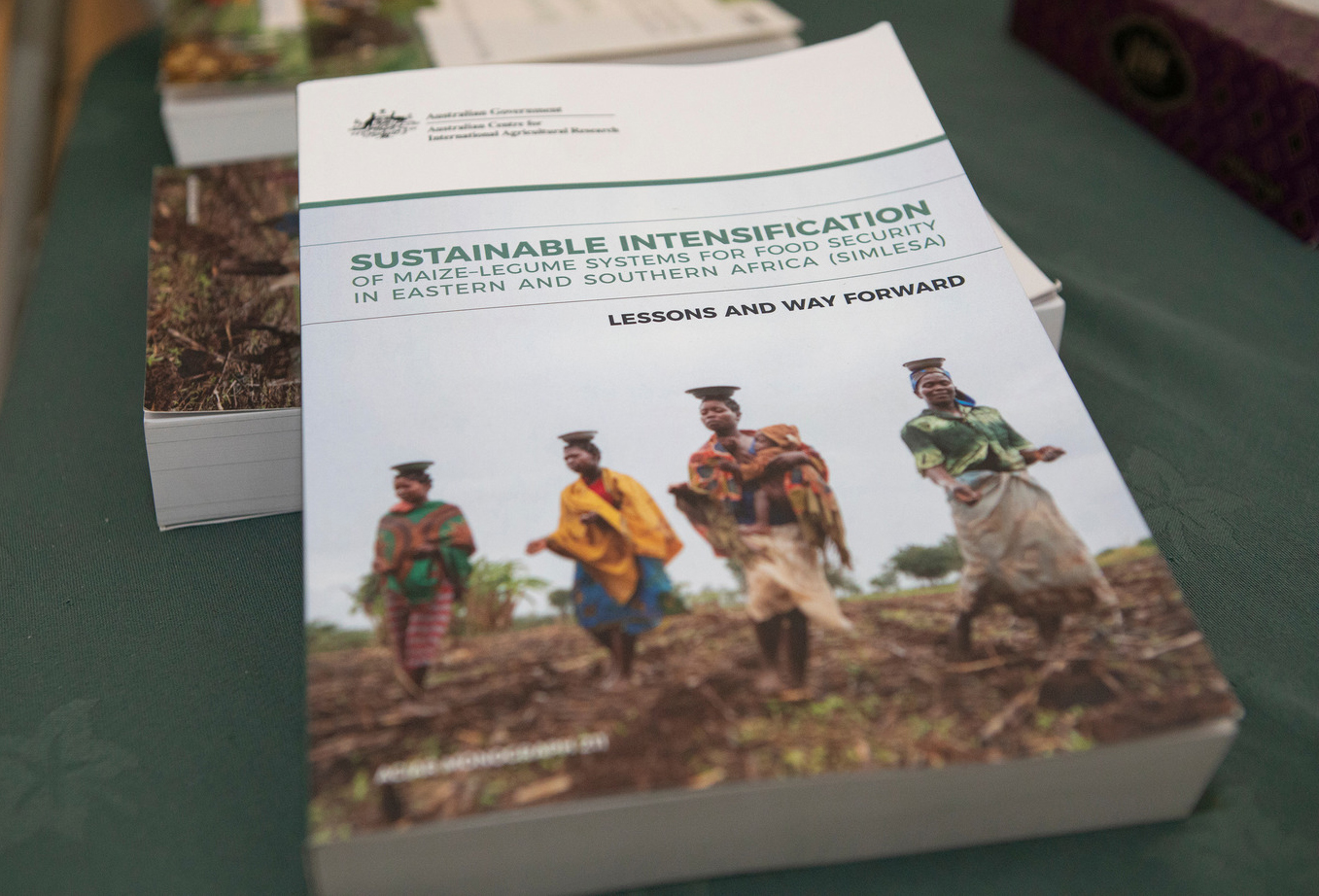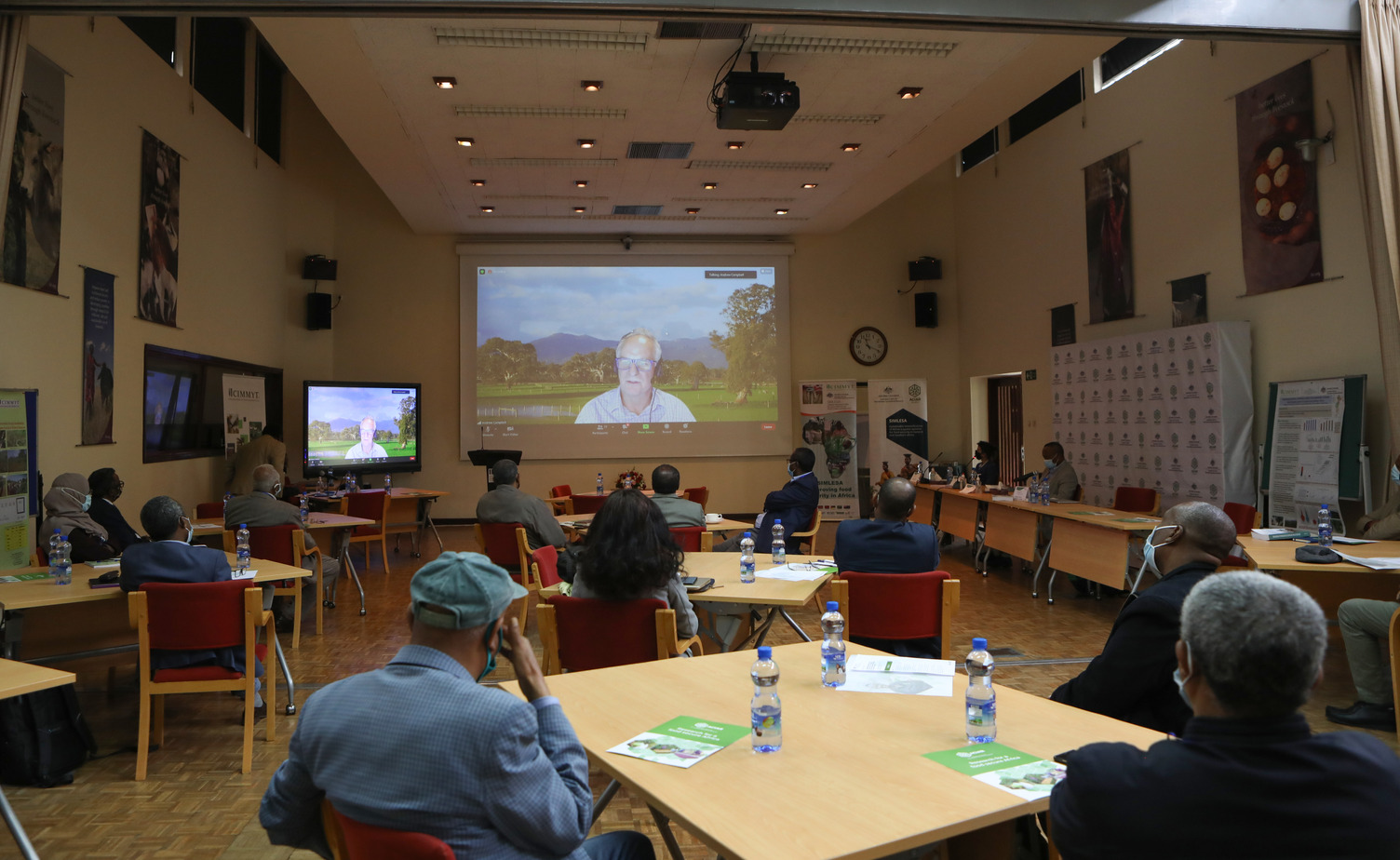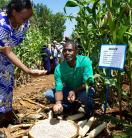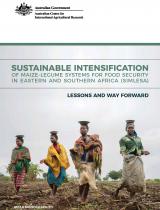New book celebrates the achievement of conservation agriculture practices in Africa

Nearly half a million farming households across Africa have benefitted from sustainable intensification technologies introduced through a decade long ACIAR investment, new research has found.
Recently launched in Ethiopia, the findings are part of a new publication capturing the knowledge gained through the SIMLESA program, a 10-year research initiative led by the International Maize and Wheat Improvement Center (CIMMYT).
SIMLESA—the sustainable intensification of maize-legume cropping systems for food security in eastern and southern Africa—ran from 2010 to 2019 and harnessed the energy and talent of researchers from national agricultural research institutes across Ethiopia, Kenya, Malawi, Mozambique, Rwanda, Tanzania, and Uganda.
The new publication, SIMLESA: Lessons and way forward, is a comprehensive synthesis of selected results and lessons from the 10-year partnership, reflecting the hard work and hard-won lessons learned by more than 60 African and 15 international and Australian scientists.
Speaking at the event, attended by high-level government and research officials at the International Livestock Research Institute (ILRI) campus Ethiopia, and online, ACIAR CEO, Professor Andrew Campbell stated that agricultural innovation is a national focus for the Australian Government. ACIAR is mobilising to build international research partnerships that improve food security, food system resilience and the livelihoods of smallholder farmers in the Indo-Pacific region.
‘SIMLESA is one of these innovative programs that showed that holistic farming systems intensification comprising of integrated reduced tillage, modern maize and legume varieties, retention of crop residue for preserving soil cover, and moderate doses of organic and inorganic fertiliser could deliver benefits to farmers and their environment,’ said Prof Campbell.
These practices are known as Conservation Agriculture based Sustainable Intensification or CASI and have resulted in more than 484,000 farmers across the region, cutting the time spent in manual labour by half while increasing household income. Additionally, within the two program phases spanning nine years, the program saw the release of 40 new maize and 64 new legume varieties that significantly increased productivity, resilience, and household food security.
This was achieved by pairing high and low productivity research hubs across five countries -Ethiopia, Kenya, Tanzania, Malawi and Mozambique- with the lessons learned in these countries implemented in these two countries - Rwanda and Uganda- as relates to technology transfer and local adoption.
On average, the results showed that maize yields improved by 11% and the yield variability reduced by 4% across eastern and southern Africa.
The farmers' testimonials are documented in a previous publication where SIMLESA associated farmers shared their inspiring stories of how they improved their farming productivity and livelihoods by applying conservation agriculture practices.
‘I would have abandoned my farm were it not for these new methods,’ said Ms Dailess Kasawalla, a farmer in Kasungu, Malawi, who worked with the project.
‘Now I harvest even more maize than I did then. I also grow soya beans, which I use for making porridge and sell for a good profit to earn money for other household needs. Soya bean is a very profitable crop.’
Additionally, there was a 65% improvement in soil organic carbon compared to soils under conventional tillage where CASI practices were implemented. This had an add-on effect on soil structure improvements leading to a 30% increase in water retention for plots with CASI practices.
The program findings documented in this book demonstrates a solid national ownership of and substantial national co-investments in the program from a policy perspective, remarks Dr Paswel Marenya, SIMLESA program leader from CIMMYT.
‘Towards the end of the program, agriculture ministers from the eight partner countries endorsed sustainable intensification as a pathway to food security and economic development. This is a plus, and we hope this book will be of great use to the national agricultural research institutes across Africa,’ said Dr Marenya.
The SIMLESA program also featured international partners, including the CGIAR centres, Queensland Alliance for Agriculture and Food Innovation (QAAFI) of the University of Queensland, Australia and the Association for Strengthening Agricultural Research in Eastern and Central Africa (ASARECA) and the Agricultural Research Council (ARC) of South Africa.





